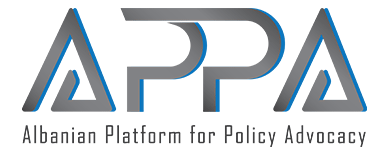
Sokol Kondi
On ‘’incidents’’ with Macedonia and Greece
Two important events in the regional and international sphere marked May in the bilateral relations between Albania and two of its neighbouring countries: Macedonia and Greece.
Regarding Macedonia, during the second week of May, after the grave armed clashes between local police and several people with Albanian ethnicity (mainly from Kosovo and Macedonia; among them an Albanian citizen), with victims on both sides, Albania held a clear diplomatic stance. Initially, the Ministry of Foreign Affairs through the minister asked Macedonian authorities for transparency and thorough investigation of the incident. MFA also asked not to wrongfully judge specific armed groups based on ethnicity.
Afterwards, Minister Bushati strengthened further the stance of the Albanian side, demanding an international investigation for what happened in ‘’Lagja e Trimave’’ in Kumanovo. This attitude escalated and peaked with Prime Minister Rama’s declaration, which implied that Macedonia risks a veto from Albania in its NATO integration aspirations, if Ohird agreement is not properly implemented, an agreement that essentially protects basic human rights of ethnic Albanians in Macedonia.
The latter was criticized by representatives of the opposition and the government, with the argument that it hurts Albanians more and that it is an internal affair of the Macedonian state or that it shows megalomania towards our neighbor.
Such attitudes from Albanian politicians create the impression that they are done to benefit political capital, rather than being objective, as they contradict the constitution that obliges our country to protect the national rights of the Albanian people living outside the borders of the country.
Even though this article is debatable related to the interpretation if it addresses Albanian citizens or ethnic Albanians, citizens of another country, it would still be irrational to ask what contradicts national interest and the protection of human rights for Albanians as well as for other citizens from the region and Europe, in the framework of respect for human rights, when in Albania they are considered to be broken. Being a UN and Council of Europe member, Albania has the right to seek respect for human rights, especially in the context of the international law where more and more cases are being treated as a threat to world peace rather than an internal affair. The principle of international law for non-interference in internal affairs of a state has undergone a deep erosion mainly along with massive violations of human rights.
Making daily politics with broad national interests of Albania is not the right path to follow.
Hellenic issue
During mid-May some Greek media close to the Hellenic government, published a news that a meeting between the Albanian ambassador in Athens and the Ministry of Foreign Affairs, programmed a long time ago, was canceled last minute. The refusal came after the decision of the Albanian government to contract a foreign company to conduct hydrocarbon research in the Ionian sea in an area claimed by both countries.
Albanian media reported that internal sources from the Ministry of Foreign Affairs reported that the Albanian side asked for information from the Greek government related to its decision to search the Ionian sea, but the responses have been vague and unclear. Only upon learning that Greece was searching for oil in an area claimed by Albania, the Albanian government decided to do the same. However, the consequences of this conflict made the Norwegian company contracted by Greece to suspend its search until the issue is resolved between the two countries. The incident has also brought the boycott of high Greek officials who canceled their plans to come to Tirana.
Even though the Greek government, differently from the previous one, has not officially declared if it considers the 2009 agreement of maritime borders between Albania and Greece in power, which was annulled as anti-constitutional from the Constitutional Court in Tirana, media has implied that Tsipras’ government too follows the logic according to which the agreement entered into force after it was approved from both parliaments.
To consolidate this stance even more Greece has introduced a reserve at the UN, where it declared not to recognize the jurisdiction of the International Court of Justice in Hague, related to issues such as sovereignty and territorial as well as maritime borders.
However, this does not exclude other judicial or diplomatic ways to solve the disagreement such as arbitrage, the International Court of Maritime Law and direct negotiations or through mediation, regarding the maritime conflict between the two countries.
However, the claim of the Greek side that the agreement for maritime borders with Albania is in power is incorrect. In fact, based on Vienna Convention for Treaties, international treaties do not enter into force authomatically after ratifying them at the internal level. In fact, after the ratification process, the genuine international act that implies the entry into force of treaties is the exchange of ratifications. Such a process has not happened between Albania and Greece. This exchange can be made directly between interested countries, can be deposited to a third interested country that serves as a guarantor or can be delivered to the General Secretary of the United Nations (most often). None of these cases happened, therefore the agreement between Albania and Greece is not valid according to international law. Even if the Constitutional Court had not declared it anti-constitutional, the lack of exchanging ratifications, which is a clear expression of the will to not consider the agreement reached, makes the agreement free of any judicial effect.
Criticisms with literary constructions and intellectual piruettes towards the attitude of Albania to protect its territorial integrity and economic interest are harmful for the country.
Nominations in the Foreign Service
The new and much talked about law ‘’On Foreign Service’’, treated in our previous reports, returned to the Assembly for re-evaluation from the President of the Republic, with respective comments. Among them, we think the request to review the article that enables unlimited flow from outside the system was appropriate, as well as reviewing the formula to compose the commission in charge of selecting candidates for ambassadors as well as limits to the President to decree ambassadors proposed by the prime minister. There were other requests to review different articles, however the ones we mention above are deemed the most objective ones that would help find a balance between different views of experts and specialists of the field, which in turn would help improve the Foreign Service. However, the Parliament disregarded all requests for reviews and passed the law as it was, which leaves room for scpeticism and doubts.
Meanwhile, accused in parliament for nepotistic appointments of two ambassadors (Qirjako Kureta and Shpresa Kureta) in a way that leaves room for doubts the minister excplained the steps needed to become an ambassador, making two mistakes in the interpretation of the law which is unforgivable for his personal knowledge as well as for his judicial staff that did not assist him properly.
Firstly, the Minister said that to become an ambassador you have to be an adviser, which the old law did not foresee for ambassadors and for which he was accused and the latter were appointed based on the old law. According to the law ‘’…employees of the foreign service who wish to receive the rank ambassador, should have passed all the ranks and formely been appointed to the duty of chief of mission for at least one mandate’’. Therefore, it is not enough for ambassadors to have been advisors.
If he was referring to the new law, that foresees such a process, it is still a legal mistake because the minister was talking about a law that had not entered into force when he was speaking in parliament and could not have had a role in appointing the ambassadors mentioned above.
Mr. Bushati went even further when he said that to become an adviser (which according to law enables the direct appointment to ambassador if it is deemed reasonable by the MFA) you should have worked 12 years for the ministry. We pose the following question: how many of the ambassadors appointed by the MFA from September 2013 onwards have worked for 12 years in the foreign service? Do the following ambassadors fulfill the criteria: the Ambassador in Spain, the Ambassador in the Netherlands, the Ambassador in the EU, the Ambassador in Slovenia and so on? We are afraid that the answer might be No. So, in practice and de facto there are cases when even the minister did not respect the career steps and needed experience to select ambassadors. Therefore, the new law should be revised int his specific part, which has not been freed from political and unprofessional trends.
References:
1- Gazeta Panorama, 21 Maj 2015, http://www.panorama.com.al/bushati-i-pergjigjet-blushit-dy-ambasadoret-kuneter-i-gjeta/
2- MPJ, njoftim 14 Maj 2015, http://www.punetejashtme.gov.al/al/zyra-e-shtypit/lajme/ministri-bushati-merr-pjese-ne-takimin-e-ministrave-te-puneve-te-jashtme-te-vendeve-anetare-te-nato-s&page=1
3- Zbehja e parimit të mosndërhyrjes së brendshme në rastet e shkeljeve të rënda të të drejtave të njeriut, http://www.studiperlapace.it/view_news_html?news_id=tedde
4- Presidenti i Republikës, dekret 10.04.2015, http://president.al/?p=26264
5- Tv Ora News, 25.05.2014, http://www.oranews.tv/vendi/pezullohen-kerkimet-per-nafte-tsipras-nuk-vjen-ne-tirane/
6- Gazeta Mapo, 25.05.2014, http://www.mapo.al/2015/05/si-u-demtuan-raportet-me-tre-shtet-brenda-javes
7- Gazeta Shqiptarja.com, 11.05.2015, http://shqiptarja.com/news.php?id_legami=168599
8- Gazeta Mapo, 18.05.2014, http://www.mapo.al/2015/05/shqiperi-greqi-rikthehet-kriza-e-detit-kufiri-ne-hage
9- Gazeta Shqiptarja.com, 20.05.2015, http://shqiptarja.com/politike/2732/shqip-ria-veto-shkupit-rama-s–39-ka-nato-pa-garantuar—39-ohrin–39–293501.html
10- MPJ, deklaratë për shtz, 09.05.2015, http://www.punetejashtme.gov.al/al/zyra-e-shtypit/deklarata-per-shtyp/deklarata-per-shtyp-e-ministrit-te-puneve-te-jashtme-ne-lidhje-me-ngjarjet-e-fundit-ne-maqedoni&page=1
11- Fletorja Zyrtare, “Për rrëzimin e dekretit nr. 9043, datë 10.4.2015, të Presidentit të Republikës Për kthimin e ligjit nr. 23/2015, “Për Shërbimin e Jashtëm të Republikës së Shqipërisë””, http://www.qbz.gov.al/botime/fletore_zyrtare/2015/PDF-2015/85-2015.pdf
12- Kushtetuta, http://www.parlament.al/web/pub/kushtetuta_perditesuar_15171_1.pdf
13- APPA, Raport Shkurt, https://appa.brentonkotorri.com/raport-shkurt-2015-ministria-e-puneve-te-jashtme/
14- Gazeta Mapo, 25.05.2015, http://www.mapo.al/2015/05/tsipras-bojkoton-tiranen-be-kerkon-te-gjendet-kompromisi
15- Parlamenti, ligje të miratuara,
http://www.parlament.al/web/Sesioni_i_Katert_18942_1.php
16- Gazeta Shekulli, 26.05.2015, http://www.shekulli.com.al/p.php?id=264689
17- Konventa e Vjenës,
https://treaties.un.org/doc/Publication/UNTS/Volume%201155/volume-1155-I-18232-English.pdf




